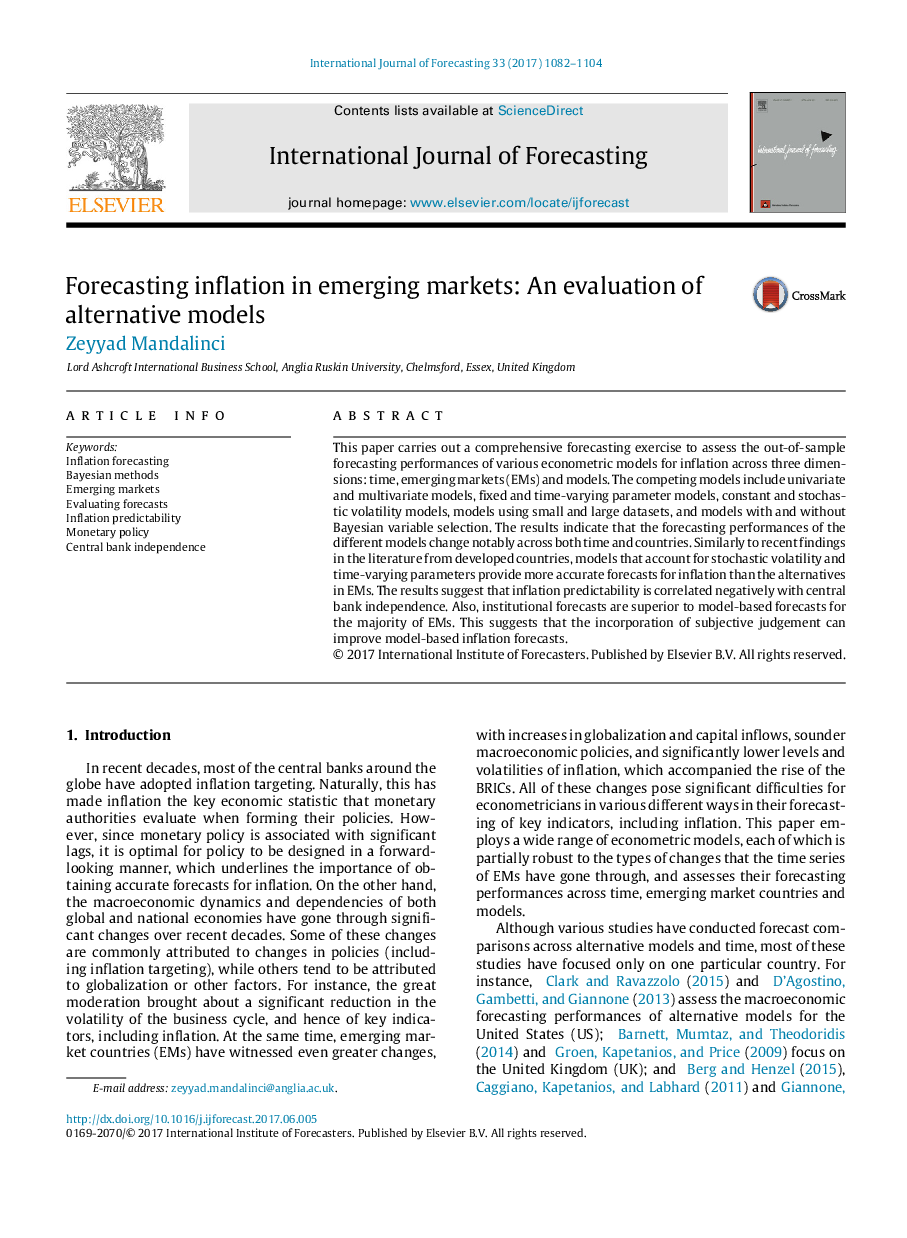| Article ID | Journal | Published Year | Pages | File Type |
|---|---|---|---|---|
| 5106363 | International Journal of Forecasting | 2017 | 23 Pages |
This paper carries out a comprehensive forecasting exercise to assess the out-of-sample forecasting performances of various econometric models for inflation across three dimensions: time, emerging markets (EMs) and models. The competing models include univariate and multivariate models, fixed and time-varying parameter models, constant and stochastic volatility models, models using small and large datasets, and models with and without Bayesian variable selection. The results indicate that the forecasting performances of the different models change notably across both time and countries. Similarly to recent findings in the literature from developed countries, models that account for stochastic volatility and time-varying parameters provide more accurate forecasts for inflation than the alternatives in EMs. The results suggest that inflation predictability is correlated negatively with central bank independence. Also, institutional forecasts are superior to model-based forecasts for the majority of EMs. This suggests that the incorporation of subjective judgement can improve model-based inflation forecasts.
